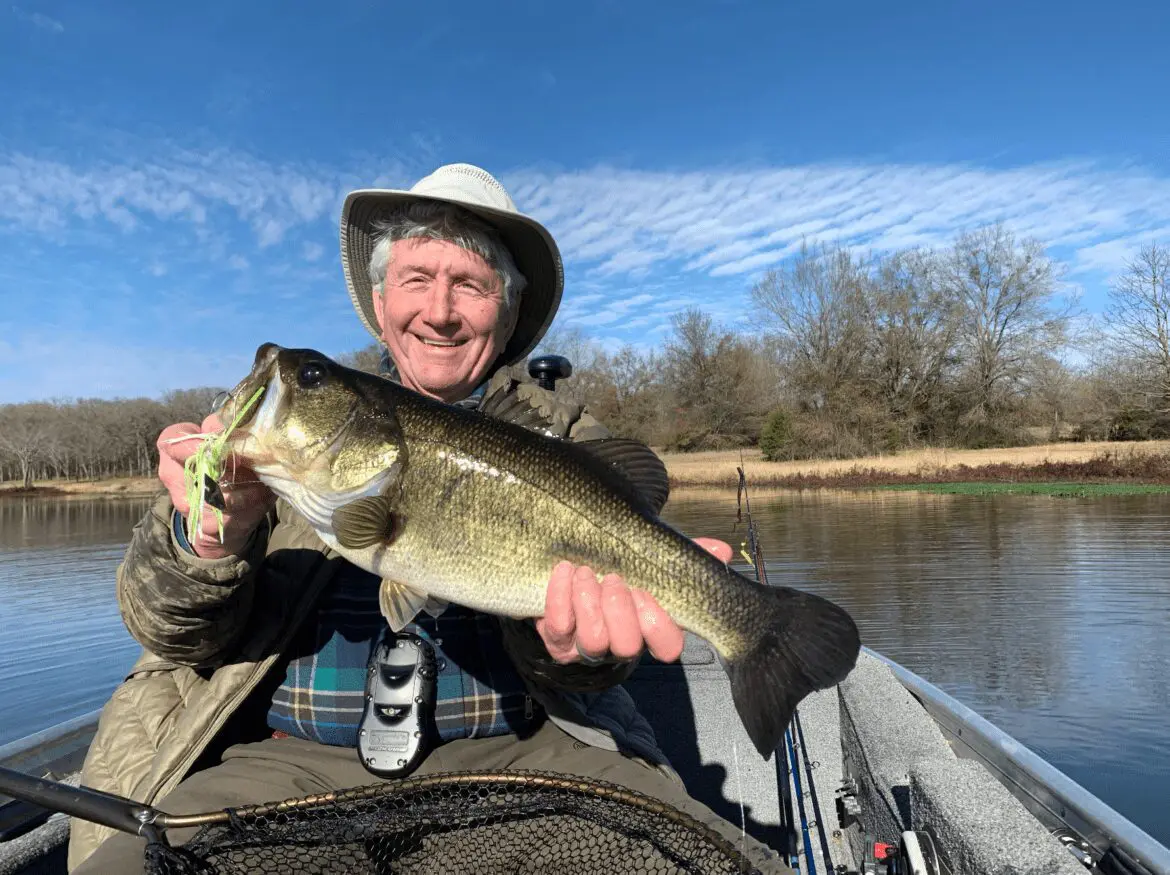Ron Gard has been managing his Prairie Rose Ranch, in Miller Grove, for fish and other wildlife for years. Four years ago, Ray Sasser, the late Dallas Morning News outdoor writer, nominated Gard for a 2023 Lone Star Land Steward Ecoregion Award.
This year, Gard was notified the ranch would be recognized.
“I was real happy about that,” Gard said. “It’s mostly what I do — make the place good for the wildlife. This year, Texas Parks and Wildlife came and took a look and later informed me.”
Prairie Rose Ranch was recognized for conservation efforts in the Post Oak Savannah region of the state. Texas Parks and Wildlife Department’s description said Prairie Rose Ranch was selected this year for its excellent outreach to new anglers, veterans’ groups, and youth, encouraging them to become involved in the outdoors primarily through fishing and fly-fishing.
Gard, who was the 2019 recipient of the Dallas Coastal Conservation Association Sportsman of the Year award, and his family have also undertaken a large brush management project focused on removing eastern red cedar from his woodlands of post oaks. He has also converted more than 80 acres of former improved pasture back to native grasslands in the Pastures for Upland Birds program. Lakes and water control efforts have resulted in excellent bass and crappie fishing, along with waterfowl hunting.
Launched in 1996, Lone Star Land Steward Awards applaud private landowners in Texas for exemplary contributions to land, water, and wildlife stewardship.
“In a state like Texas, where private own
ers hold 95 percent of the land, landowners play a crucial role in conservation and stewardship efforts,” said TPWD Executive Director David Yoskowitz. “That’s why it’s so important we take this opportunity each year to celebrate those creating a legacy of land stewardship.”
Other land stewards awards:
Special Recognition: Cibolo Center for Conservation, Boerne
Tucked along a rapidly urbanizing stretch of I-10 northwest of San Antonio, Cibolo Center for Conservation offers two campuses encompassing more than 160 acres. The Cibolo Nature Center offers miles of trails through an array of ecosystems while helping preserve the important Cibolo Creek watershed.
Blackland Prairie: Kocurek Farm, Weimar
Assisted by the Oaks and Prairies Joint Venture Grassland Restoration Incentive
Program and TPWD Pastures for Upland Birds, Gary and Dianna Kocurek have de- voted hundreds of hours mulching yaupon and red cedar to restore live oak, savannah and blackland prairie habitats while protecting unique riparian relict pine forests and cypress-lined creeks.
Rolling Plains: Melton Ranch, Roby
Paul Melton was involved early in identifying and helping to procure funding to establish the Rolling Plains Quail Research Ranch, where researchers develop science-based best practices for quail management, including prescribed burning methodologies, grazing procedures and predator management. Melton manages his own property using practices including planned grazing, Conservation Reserve Program contracts to re-establish native vegetation, and innovative brush control techniques.
Crosstimbers: Quahadi Ranch, Dublin
Owner Stephen Smith engages in active research with Texas Tech University, Tarleton State University and the Rolling Plains Quail Research Ranch to improve bobwhite habitat and translocate quail to re-establish historic population levels. The ranch has implemented a management plan and, in 2019, Smith decided to destock cattle to increase herbaceous cover and bobwhite nesting substrate. This move allowed the propagation of native vegetation such as little bluestem, Indian grass and switchgrass. In the future, rotational livestock grazing will maintain rangeland for bobwhite quail and other native wildlife.
Edwards Plateau: Zesch Family Ranch, Mason
By employing a coordinated suite of practices to help them achieve their land management goals, Hal and Amy Zesch have continued a family tradition on their Hill Country ranch. These certified Texas Master Naturalists have designed a grazing program for their cattle that emulates the movement of bison herds, varying rotations based on rainfall and pasture conditions to help maintain a desirable cover of native grasses regardless of precipitation. They have also built a series of diversion dams to slow water flow and soil loss during heavy rainfall and have worked with TPWD to reintroduce prairie dogs and install burrowing owl nest boxes.
Official recognition will take place May 25 at the 27th annual Lone Star Land Steward Awards banquet at Austin’s Hyatt Regency.


